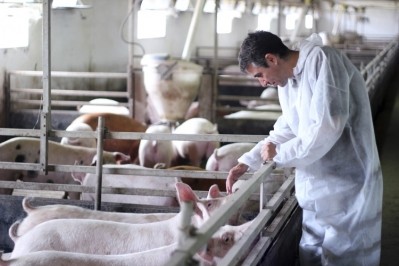No-deal Brexit papers slammed by trade bodies

The Department for Exiting the EU yesterday (23 August) put out the first 25 of these notices, detailing the effect of a no-deal Brexit on a number of industry sectors and institutions, including trade with the EU, the production of organic food, and farm payments.
The Food and Drink Federation (FDF) said that while the Government’s decision to publish the technical notices was “laudable”, it confirmed what a “grisly prospect” a no-deal Brexit would be.
Chief executive Ian Wright lamented that there was no sign of further progress on negotiating frameworks with the devolved administrations, or any substantive information on mitigating the effect of a no-deal scenario on the Irish border.
“Specifically for food, today’s notice about organic food certification makes clear that UK organic exporters may face a ban on their exports to the EU for at least nine months after a no-deal exit, while new approvals for certification are sought.
“These issues apply far more widely than just organic food – any UK food that currently displays EU marks or logos will be in the same boat.”
Industry fears
Wright also voiced food industry fears that the EU Trade Control and Expert System (TRACES), which tracks the entire trade and certification process for animals, food, feed and plants, would not be replaced with a functional UK-based IT system in time for March 2019.
“The new burdens potentially facing food and drink exporters and importers set out today will frighten many SME food businesses,” he added. “The piecemeal release of these notices indicates that many are not yet ready and agreed for publication. That hardly inspires confidence.
“As the consequences of a no-deal exit from the EU become ever clearer it is vital that, to protect the interests of shoppers and consumers, the Government must deliver a deal with the EU.”
The Soil Association argued that the technical notices offered no further clarity to food and farming businesses on an issue that was already presenting “unprecedented challenges” to the industry.
Head of standards Chris Atkinson said the notices provided neither reassurance nor advice on how to prepare for a potential no-deal scenario.
“The information outlined raises concerns that imports and exports to and from the EU may be held up for months,” said Atkinson.
“The critical issue of continuing recognition by the EU of the organic status of products certified in the UK is left entirely unresolved by this paper and a similar document that was issued by the EU some months ago.
‘Unrealistic goal’
“We are also concerned that a new UK-owned imports traceability system to replace the current EU system would need to be in place by 29 March 2019. In our view, this is an unrealistic goal within the timeframe. Delays could significantly hinder trade.”
Union GMB said the new Brexit papers showed the Government’s “utter contempt” for the British public and that it was gambling with the UK industry and people’s livelihoods.
National secretary for manufacturing Jude Brimble said: “Ministers said a trade deal would be the easiest thing in the world and now, with a few months to go, we are preparing for chaos.
“GMB demands the Government put people’s jobs, safety and health above settling internal party squabbles.”
The Freight Transport Association (FTA) welcomed the advice on how to prepare contingency plans, but called for more information in terms of the level of detail and the areas covered, including market access for road haulage and air freight.
FTA European policy manager Sarah Laouadi said: “While preparing for every eventuality – including a no-deal position – is a sound strategy, it should not be the end-game that negotiators accept.
“There are clear problems that could face our supply chain if agreements cannot be reached including customs and border arrangements, the continuity of trade agreements and vehicle permits, as well as the continuation of business access to EU workers.
“Solutions for these areas are key to the continued success of British business, both at home and abroad, after 29 March 2019.”















